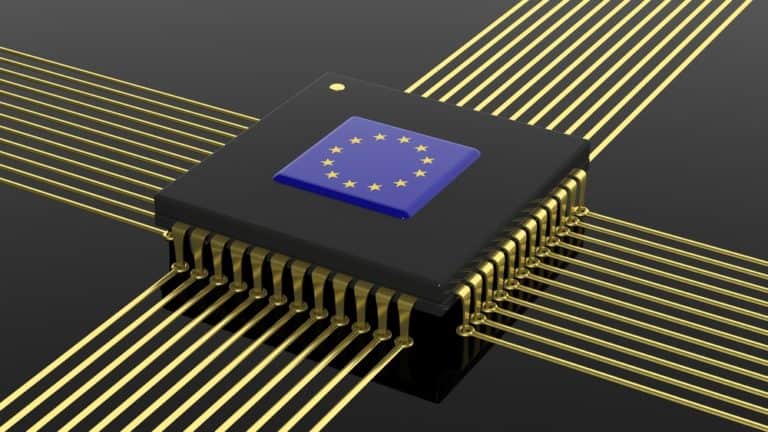A German think tank study says current EU chipmaking plans are insufficient
China’s rapid advances in semiconductor technology pose a national security risk to Europe, according to a new report from German think tank, Stiftung Neuer Verantwortung. The threat, they say, requires governments to make sweeping changes to their plans to build out the chip industry.
The intensifying US-China technology rivalry and the recent chip shortages that forced most European car makers to temporarily stop production has caught the attention of EU policymakers. As a result, the European Commission is working on an EU Chips Act. The proposed Act is scheduled to be ready in mid-2022.
Jan-Peter Kleinhans of the Stiftung, and John Lee, formerly of the Mercator Institute for China Studies authored the report. They remark that Europe’s semiconductor industry has not received this level of attention from policy makers in a long time. Indeed, they say the EU now has a window of opportunity to substantially invest in its semiconductor ecosystem and strengthen international partnerships.
They write that China already has a substantially stronger chip design ecosystem than Europe in several areas. Moreover, the Chinese can scale faster due to heavy investment in chip design by China’s hyperscalers, Internet of Things and mobile technology companies. Under these conditions, Europe will increasingly depend on Chinese designed chips. l increasingly depend on Chinese designed chips.
Proposing a triple-pronged plan of action
To avoid the threat such dependence poses, they propose that EU investment must target three important areas.
First, they need to invest in EU’s dwindling chip design ecosystem. “Europe needs to focus on improving conditions for start-ups, small and medium-sized enterprises and spin-offs from research institutions,” they claim. This should include lowering entry-barriers to chip design, investing in chip design infrastructure and improving access. The initiative should concentrate on speed by reducing the level of bureaucracy and expanding funding to private and public equity.
The authors’ second point is that Europe needs to strengthen its position in back-end manufacturing. This includes specifically assembly, test and packaging. They stress that this needs to go beyond existing strengths in research & development. “Front-end fabs from leading companies such as Intel, TSMC or Samsung receive much attention from policy makers,” they say. But the concentration in Asia of back-end capacity “has direct national security implications for Europe. “
Thirdly, Europe needs to strengthen its collective capacity to continuously map and assess the global semiconductor value chain, according to the study. This is necessary to understand interdependencies, evaluate bottlenecks and identify potential shortages over the long-term.
“Ad hoc assessments are not a sound basis for strategic planning for this highly complex and intertwined industrial value chain,” they state. “One possibility would be to increase the resources and scope of the newly established Observatory for Critical Technologies,” they add.
But just as important, they say is the need for “strengthening partnerships with like-minded partners, notably the US and East Asian economies.”
